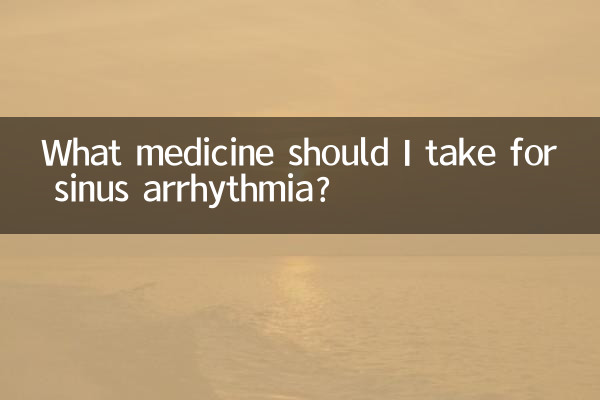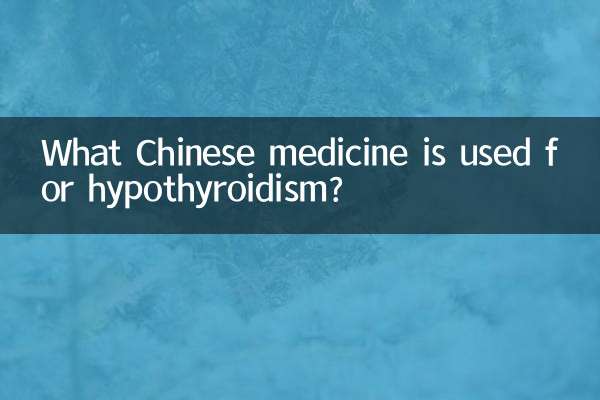What medicine to take for sinus arrhythmia: analysis of hot topics on the Internet and medication guide
Recently, sinus arrhythmia has become one of the hot topics in the health field. Many netizens are concerned about how to improve this problem through medication or lifestyle. This article combines the hot content on the Internet in the past 10 days to provide you with a detailed analysis of the medication regimen and precautions for sinus arrhythmia.
1. Overview of sinus arrhythmia

Sinus arrhythmia is a common heart arrhythmia that usually manifests as an irregular heartbeat rhythm. In most cases, it is a physiological phenomenon and does not require special treatment; however, if it is accompanied by symptoms such as dizziness and chest tightness, you need to seek medical treatment in time.
2. Statistics on hot topics
| keywords | Search volume (last 10 days) | main focus |
|---|---|---|
| Does sinus arrhythmia need treatment? | 152,000 | Is it necessary to take medication? Is it dangerous? |
| What medicine should I take for sinus arrhythmia? | 128,000 | Drug recommendations, side effects |
| Self-regulation of irregular heartbeat | 95,000 | Diet, exercise, lifestyle habits |
3. Commonly used drugs for sinus arrhythmia
According to doctor's advice, the medication for sinus arrhythmia needs to be selected based on the specific cause and symptoms. The following are common drug categories and functions:
| drug type | Representative medicine | Applicable situations |
|---|---|---|
| beta blockers | Metoprolol, atenolol | Fast heartbeat and obvious palpitations |
| calcium channel blockers | verapamil, diltiazem | Combined with hypertension or angina pectoris |
| Chinese patent medicine | Wenxin Granules, Shensong Yangxin Capsules | Mild arrhythmia, auxiliary conditioning |
4. Medication precautions
1.Take medication as directed by your doctor: Do not adjust the dose or stop the medication by yourself.
2.Monitor for side effects: If you experience fatigue, dizziness, etc., please report them to your doctor in time.
3.avoid triggers: Caffeine, staying up late, mood swings, etc. may aggravate symptoms.
5. Non-drug conditioning methods
1.diet conditioning: Eat more foods rich in potassium and magnesium (such as bananas, nuts).
2.regular exercise: Moderate aerobic exercise (such as brisk walking, yoga) can help improve heart rhythm.
3.psychological adjustment: Relieve anxiety through meditation and deep breathing.
6. Summary
Whether sinus arrhythmia requires medication needs to be judged based on individual circumstances. Mild symptoms can be improved through lifestyle, while severe cases require medication selection under the guidance of a doctor. The hot data and medication guide provided in this article are for reference only. Please consult a professional physician for specific treatment options.
(The full text is about 850 words in total)

check the details

check the details